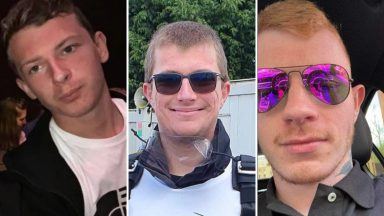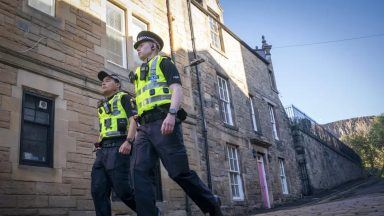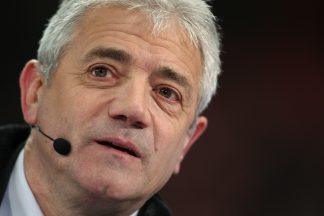Poor mental health and loneliness are severely impacting people in Scotland living with aphasia, a communication disorder affecting a third of stroke survivors, according to research.
Chest Heart & Stroke Scotland surveyed nearly 2,000 people living with chest, heart and stroke conditions and long Covid to understand the challenges.
The results showed that challenges accessing rehabilitation and support services have a significant impact on the mental health of people who struggle with communication after a stroke.
The research also revealed that two-thirds of people with aphasia experienced some kind of difficulty accessing services and half said there was support they needed but they were not able to access it.
Aphasia most commonly occurs after a stroke, but it can occur with other neurological conditions and brain injuries.
In 2022 the family of Hollywood actor Bruce Willis announced he had been diagnosed with the condition.
People with aphasia can have difficulty using words to express themselves and sometimes have difficulty understanding words.
Some people with aphasia also experience difficulties in cognition or thinking.
Chest Heart & Stroke Scotland chief executive Jane-Claire Judson said: “Communicating freely with family, friends and loved ones, and for work, is something that many of us take for granted. But for those living with aphasia, all that can be taken away in an instant.
“We know from surveying people living with our conditions, and through our aphasia support groups, that the impact of this condition is life-changing, leading to mental health issues and feelings of isolation and loneliness.
“Often people report a lack of connection with others due to communication difficulties or being able to take part in activities they once enjoyed. Many even report being treated negatively as a result of their condition, which devastatingly impacts their mental health.
“But we also know that with the support from Chest Heart & Stroke Scotland and the NHS that people with aphasia can live full and happy lives. However, we need increased awareness of the condition in the wider community, as well as improved access to rehabilitation services.
“The Scottish Government must make sure that people with aphasia are getting the support they need, including access to speech and language therapy for as long as they need it, and ongoing community support.
“There is so much more that can be done to support the thousands of people living with aphasia across Scotland to enable them to connect with loved ones and get back to activities and employment. We need action now.”
Glenn Carter, head of the Royal College of Speech and Language Therapists in Scotland, said: “Communication is core to who we are as humans. This report powerfully illustrates how aphasia can negatively impact mental health, exacerbate feelings of isolation and perpetuate stigma.
“Improving access to speech and language therapy services can unlock the potential of stroke survivors, providing them with the necessary support and hope they need to reintegrate into work, pursue hobbies and connect with their loved ones.”
A Scottish Government spokesperson said: “The Scottish Government is committed to ensuring that people who have suffered strokes receive the best possible care and recognise that high-quality rehabilitation is a key component of this. This includes those who experience aphasia.
“An increased focus on rehabilitation is a key component of our Stroke Improvement Plan. Early assessment of rehabilitation needs following an acute stroke – including speech and language therapists – are important elements of ensuring people get the support they need.
“That is why, as part of the Scottish Stroke Improvement Programme review of stroke services, NHS boards are expected to demonstrate that the provision of specialised communication rehabilitation is embedded in their stroke service.”
Follow STV News on WhatsApp
Scan the QR code on your mobile device for all the latest news from around the country


 PA Media
PA Media

























